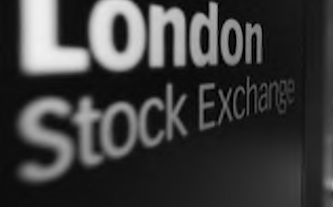Global company dividends fell by $108.1 billion to $382.2 billion in the second quarter of 2020, the lowest Q2 total since 2012, according to the latest Global Dividend Index from Janus Henderson.
UK dividends fell 54% in the second quarter, down by $18.4 billion to $15.6 billion.
Each year, Janus Henderson analyses dividends paid by the 1,200 largest firms around the world, measured by stock market value.
Given the Q2 figures, Janus Henderson has revised and improved its best and worst case scenarios for full-year 2020 company dividends.
“Janus Henderson’s best case now sees dividends falling 19% in 2020 on an underlying basis, equivalent to a 17% headline decline, yielding a best-case total of $1.18 trillion,” said the firm.
“Janus Henderson’s worst case sees an underlying fall of 25%, equivalent to a 23% headline decline.
“That would generate total global payouts of $1.10 trillion.
“This means that not only has the uncertainty for the year diminished but the mid-point estimate has improved by two percentage points too.
“Even so, 2020 will be the worst year for dividends since the global financial crisis.”
Janus Henderson said the 22% Q2 headline fall in dividends equated to a decline of 19.3% on an underlying basis and was easily the worst quarterly drop since the index started at the end of 2009 after the global financial crisis (GFC).
About 27% of Q2 payers cut their dividends, and more than half of this group cancelled them outright.
Dividends fell in every region of the world, except in North America, thanks in particular to resilience among Canadian companies.
There was a wide variation by country and by industry.
European company (ex-UK) dividends fell 45% in the second quarter of 2020 — down by an “astonishing” $66.9 billion to $83.4 billion
Q2 was a particularly difficult quarter for France, Europe’s largest dividend payer, which saw total dividends reach their lowest level in at least a decade, though some of the lost French income will be restored later in 2020.
At the other end of the European scale, Swiss payouts barely changed year-on-year.
In Asia, Australia saw the greatest impact, with more expected to come in the third and fourth quarters, while Japan was relatively insulated.
Industry trends showed that healthcare and communications dividends proved resistant to dividend cuts, while financials and consumer discretionary payouts were particularly vulnerable.
Matt Peron, Director of Research at Janus Henderson, said: “Dividends are an important part of investors’ total returns as well as a sign of the health of the underlying business, so it is important to track them as we do with our one-of-a-kind index.
“While dividends have taken a reset in most regions, especially in Europe, due to the recent economic disruption, we expect to see a rebound in 2021 and a resumption of the strong trends in this very important source of return for investors in the coming years.”
UK dividends fell 54% in the second quarter to $15.6 billion.
The UK’s headline decline in dividends was exacerbated by lower one-off special dividends, leaving payouts for UK companies in the index 41% lower on an underlying basis, in line with the UK’s European neighbours.
Among the world’s larger stock markets, only France and Spain saw bigger declines in Q2 than the UK.
“In the UK, companies outside our index which are smaller and tend to be more directly exposed to the UK domestic economy cut their dividends even further,” said the report.
“More than half the UK companies in our index cut or cancelled payouts, with HSBC, Shell, Lloyds and Glencore making the biggest impact.
“Rio Tinto, however, one of the UK’s top-ten payers, announced a slightly increased payout for Q3.
“The seasonally important third quarter is likely to be severely impacted too, not least because BP has now halved its dividend for the rest of the year.
“Several large UK companies had been paying out an excessively large portion of their profits as dividends for some time.
“The pandemic is giving many of them an opportunity to reset investor expectations, which will make future payouts more sustainable.”
